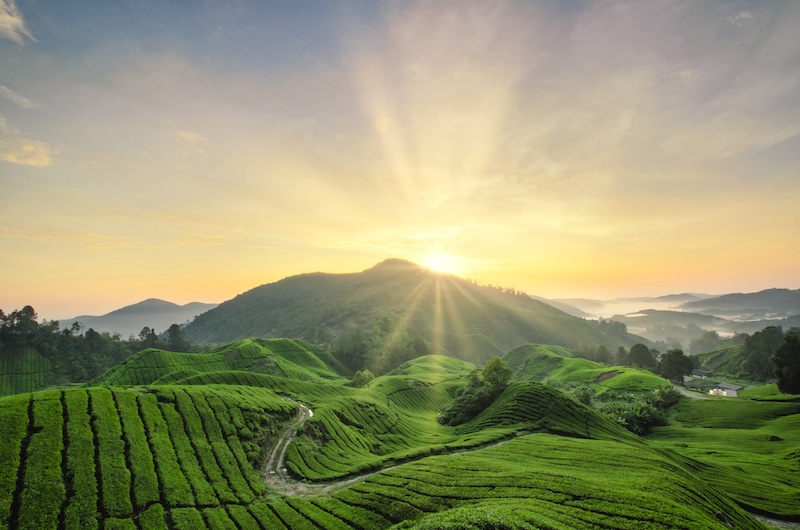

The “Malaysia Truly Asia” campaign has been a cornerstone of Malaysia’s tourism branding since its inception in 1999. The campaign aimed to portray Malaysia as a microcosm of Asia, offering visitors a comprehensive Asian experience in one destination, showcasing the country’s unique blend of cultures, natural beauty, and warm hospitality. Over the years, the campaign has significantly boosted tourism, making Malaysia a well-recognized name in the global travel market. Its vibrant imagery, catchy slogan, and emphasis on Malaysia’s natural and cultural assets have left a legacy.
For Malaysians, this slogan evokes a deep sense of pride and identity. However, in the rapidly evolving tourism landscape of Southeast Asia (SEA), this positioning has become less clear and struggles to create an emotional connection among non-Malaysian audiences, particularly towards Chinese tourists.
“In my impression, only Singapore and Malaysia in Southeast Asia don’t have particularly negative news. My perception of Malaysia is just that, nothing more. Of course, now with visa exemptions, I would be more interested in experiencing it.” – Li
When it comes to communicating to non-Malaysian audiences, “Malaysia Truly Asia” can hardly create an emotional attachment. Some may be confused as to why Malaysia represents Asia. For dynamic nightlife, people choose Bangkok; for zen, meditation, yoga, and surfing, they choose Bali; for a safe, urban, and diverse cultural experience, they choose Singapore. So, what is Malaysia’s positioning that echoes with “Malaysia Truly Asia”? For Chinese travelers, the slogan is also hardly seen on their social media platforms.
“I think if I were to go to Malaysia, there would need to be some kind of trigger, like having friends there or some specific event. For regular tourist destinations, I’d rather think of Thailand or Bali.” – Hu
Malaysia is not just another Southeast Asian country with luxury beaches, great food, and natural and cultural beauty; Thailand and Bali are already far ahead in these aspects. Malaysia needs to differentiate itself and speak authentically from a place of strength. Talking to our Chinese travelers, we identified four key areas:
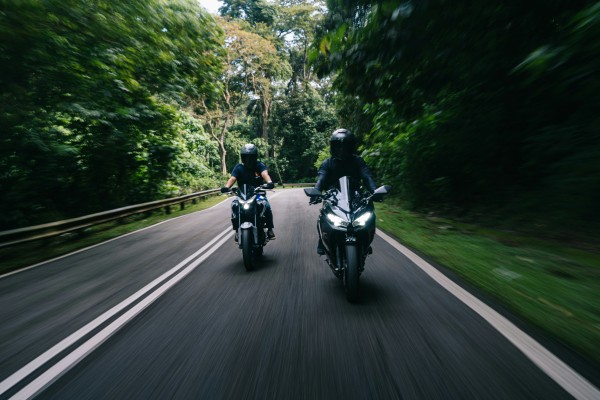
Adventure Travel: Malaysia offers unique opportunities for adventure tourism, which go beyond the typical beach experience. Tourists can explore the jungles of Borneo, live with indigenous tribes, climb Mount Kinabalu, dive in the reefs of Semporna, and explore the caves in Ipoh. This niche market of adventure tourism can attract natural influencers whose adventures inspire others, creating a new identity for Malaysia as an adventure destination. A Chinese traveler mentioned, “Recently, volcano trekking in Indonesia has become very popular. Malaysia can capitalize on this trend by promoting its own tropical rainforest landscapes and challenging treks.” – Zhao
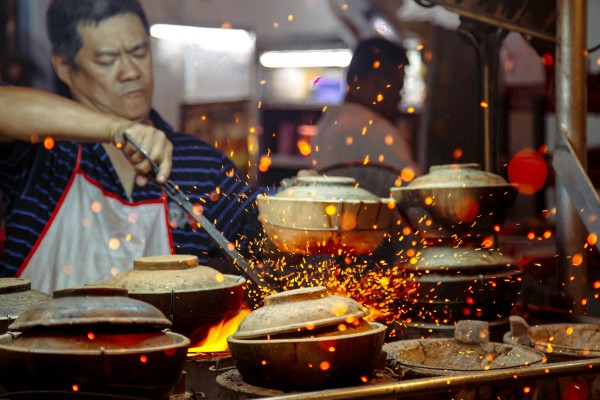
Foodie Tourism: Malaysia’s culinary diversity is unparalleled, offering a rich tapestry of regional cuisines that delight the palate and tell a story of cultural fusion. Laksa alone boasts over 20 regional variations, from Penang’s tangy Asam Laksa and Seremban’s creamy Curry Laksa to Sarawak’s tamarind-infused Sarawak Laksa. These dishes showcase a remarkable diversity of ingredients and flavors that remain under-appreciated and under-explored among travelers.
Another charming aspect of Malaysian food culture is its vibrant kopitiam (coffee shop) scene, where an array of beverages like kopi-peng, kopi-o, kopi-c, cham, kopi-gao, and kopi-gau can be found. This everyday ritual of choosing from dozens of different coffees and teas adds to the unique experience of daily life in Malaysia. Exploring Malaysia’s food culture is not just about taste but also about immersing oneself in the rich traditions and daily life that make each dish special.
The best food in the world often requires effort to discover, and in Malaysia, it means experiencing the vibrant food culture firsthand. Unlike the touristy hawker centers of Singapore, Malaysia’s food scene offers a greater level of authenticity that appeals to true food enthusiasts. Chinese travelers today are seeking genuine experiences and compared to the overhyped offerings in Bali and Singapore, Malaysia stands out as an exciting opportunity to explore a culinary landscape that is both diverse and deeply authentic.
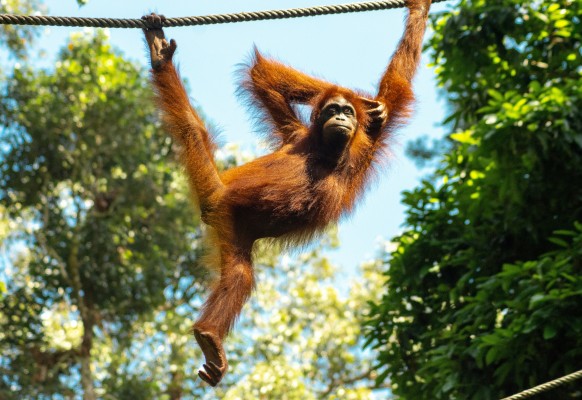
Eco-Tourism: Malaysia’s rich biodiversity offers huge potential for eco-tourism, positioning it as a prime destination for environmentally conscious travelers. The country is a natural greenhouse teeming with unique wildlife such as the orangutan, Malayan tiger, and various endemic species. Collaborations with local startups focused on sustainability and green initiatives, like Sarawak’s mission for clean energy and hydroelectric and hydrogen projects, can significantly enhance Malaysia’s eco-tourism appeal. Promoting these eco-friendly practices helps build a national identity around conservation and sustainability, offering tourists opportunities to explore and learn about Malaysia’s diverse ecosystems.
“I want to experience the wild, which is different from touring a forest park in an electric car. When I traveled to Xishuangbanna, the homestay owner told me about his experience collecting honey in a village. Each village’s honey is different, and it requires knowledgeable locals to guide you. He shared the customs and culture of the village, how everyone plays together, and the differences between various ethnic groups. I listened to this story for a whole day, doing nothing but drinking tea and listening to the honey story.” – Zhao
This quote underscores a growing demand for authentic, immersive experiences where tourists can connect deeply with nature and local cultures. For Malaysia, this means developing and promoting wildlife and eco-tourism experiences that offer more than just sightseeing. Malaysia can create tailored experiences where visitors can engage with local communities, learn traditional practices, and appreciate the country’s rich biodiversity. Initiatives such as rainforest conservation projects, marine life protection programs, and sustainable agriculture tours can provide immersive experiences that align with global eco-tourism trends. By embracing and showcasing its commitment to environmental stewardship, Malaysia can attract a growing segment of travelers seeking meaningful and responsible travel experiences.
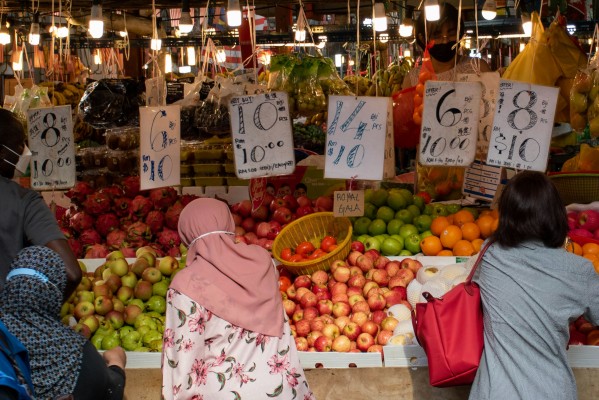
Cultural Tourism: Malaysia’s cultural and religious diversity is a significant asset. The country is home to stunning mosques, hilltop Hindu temples, and serene Buddhist sanctuaries. Due to historical preservation, Malaysian Chinese culture remains more traditional compared to much of modern China, offering a unique glimpse into the past. However, to truly captivate travelers, cultural tourism must extend beyond traditional sites like temples. Malaysia should embrace and promote immersive, day-to-day life experiences and “travel and learn” programs that allow visitors to connect deeply with the heartbeat of Malaysian society. Imagine strolling through vibrant local markets, sharing stories and meals with locals, or participating in hands-on cultural workshops. These experiences can bring Malaysia’s rich cultural tapestry to life, making each visit a deeply personal journey. By highlighting these authentic interactions and everyday moments, Malaysia can stand out in the SEA region. The challenge lies in sharing these experiences with Chinese travelers in a respectful and sustainable manner, ensuring that the emotional connection to Malaysia’s culture remains genuine and impactful.
“I really like using city walks to understand local customs. I remember when I went to Penang, I walked along the streets to learn about the local Chinese culture, the differences between the three races, and some unique features that only Malaysia has. A Malaysian friend shared his views on economic changes in Southeast Asia, his personal decisions in life and employment, and the dilemmas of Malaysian youth. This added another layer of thought to what I saw with my eyes, making the experience more three-dimensional.” – Yang
“My first experience in Singapore was great, so we also want to explore education there. I heard that Malaysia loves children, and if given the chance, I would like to enroll my child in educational activities there, allowing them to participate in one- to two-week learning and experience programs during the summer and winter holidays.” – Liu
“Malaysia Truly Asia” is a strong underlying concept that has stood for 25 years. However, it is most associated with catchy songs and attractive videos, but does this still work in the current social media age? While these signature songs and videos hold a place in Malaysians’ hearts, they do not necessarily resonate with foreign tourists, particularly Chinese travelers. The campaign needs to evolve to speak directly to Malaysia’s unique points of differentiation.
Travelers are not a monolith, and often choose Malaysia for one of its unique selling points (USPs). Therefore, it’s best to adopt a marketing and communication strategy that is focused and targeted. Instead of long TVC-style videos that present Malaysia as a broad concept, we should be working with highly targeted influencers who can highlight Malaysia’s diverse offerings:
Adventure tourism: Collaborate with influencers specializing in diving, hiking, and other adventure activities to attract thrill-seeking tourists. Highlighting Malaysia’s unique adventure opportunities, such as diving in the reefs of Semporna, trekking through the jungles of Borneo, and climbing Mount Kinabalu, can appeal to this niche but growing market.
Culinary tourism: Partner with global foodie influencers whose followers appreciate the diversity and authenticity of Malaysian cuisine, embracing the ‘seek it out’ nature of Malaysia’s street-food scene. Lean into viral nature of its ‘food-fight’ with Singapore, picking a high-profile battle Malaysia knows it can win.
Eco-tourism: Engage with local and international sustainability influencers who can meaningfully interact with and support Malaysia’s burgeoning eco-friendly tourism industry. Highlight Malaysia’s rich biodiversity and conservation efforts, such as those protecting the orangutan and promoting sustainable practices in Sarawak’s clean energy initiatives. This will attract like-minded, environmentally conscious travelers from around the world.
Cultural Tourism: Work with culture-driven travel influencers who can showcase Malaysia’s incredible cultural diversity, including significant sites of Islam, Hinduism, Buddhism, and other faiths. Collaborate with content creators to explore both the challenges and strengths of the relationships between Malaysia’s diverse cultures, showcasing how these communities have coexisted for decades despite their drastic differences. For travelers, the beauty of learning through these cultural dynamics is profound. Highlighting these interactions will not only underscore Malaysia’s unique cultural mosaic but also engage and educate visitors in a meaningful way. By presenting stories of harmony, resilience, and collaboration amidst diversity, these narratives can reveal the true essence of Malaysia, offering travelers a deeper, more nuanced understanding of the country’s rich heritage. This approach will emphasize Malaysia’s identity as a vibrant, multi-ethnic society, enhancing its appeal as a destination where cultural diversity is not only seen but deeply felt and appreciated.
While this approach may sound challenging and less memorable than another iconic rendition of “Malaysia Truly Asia,” it is necessary to solidify Malaysia’s positioning. Travelers are more sophisticated than ever, and Malaysia risks losing the race to establish itself ahead of Bali and Thailand if it does not adapt.
For Malaysia to reclaim its position as a leading tourism destination in Southeast Asia, a refreshed approach to its branding is essential. By focusing on experiential travel, wild exploration, cultural and food diversity, and sustainability, Malaysia can offer a unique and compelling narrative that resonates with international travelers, especially the growing market of Chinese tourists. This strategic rebranding, coupled with targeted communication efforts, will ensure that “Malaysia Truly Asia” not only remains relevant but becomes a beacon for travelers worldwide.
Eileen Tang
Managing Director
In the coming weeks, we will share a series of articles based on our qualitative research with Chinese travelers to SEA, diving into the challenges and opportunities for Malaysia. Topics will include:
A Labbrand Group Company © 2005-2025 Labbrand All rights reserved
沪ICP备17001253号-3To improve your experience, we use cookies to provide social media features, offer you content that targets your particular interests, and analyse the performance of our advertising campaigns. By clicking on “Accept” you consent to all cookies. You also have the option to click “Reject” to limit the use of certain types of cookies. Please be aware that rejecting cookies may affect your website browsing experience and limit the use of some personalised features.